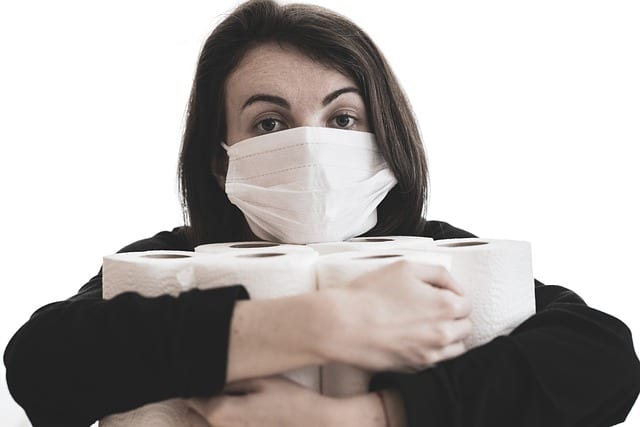Elizabeth Barnes said she felt like she was under house arrest. Her gilded cage was a four-bedroom Mid-Century bungalow in the Mistletoe Heights area of Fort Worth. Still, she was eager to return to retailers and restaurants. Like many of us, the 38-year-old real estate agent and mother of three has been self-quarantining for weeks. When TexasGovernor Greg Abbott relaxed the lockdown a couple of weeks ago, she hit the in-store shopping racks.
“I’m still being very careful,” she said. “I wear a mask when possible, and I’m using a lot of sanitizer. Shopping is my weakness, and doing it online wasn’t filling that void.”
 To accommodate her and others who are rushing back to stores, retailers have been forced to make significant changes. Many national chains have altered their return policies and dressing room rules. A few, such as Costco, have made wearing a mask a condition of entering the store.
To accommodate her and others who are rushing back to stores, retailers have been forced to make significant changes. Many national chains have altered their return policies and dressing room rules. A few, such as Costco, have made wearing a mask a condition of entering the store.
The new breed of pent-up shoppers like Barnes presents a new challenges for retailers. Business owners welcome the crush of business but are leery of this new, potentially dangerous environment.
What Are Revenge Shoppers?
As coronavirus lockdowns begin to ease, increased foot traffic in stores has been driven primarily by “revenge shoppers.” The phenomenon is most marked in a number of Chinese cities, where shoppers have been anxious to spend.
“Revenge shopping” refers to the overindulgence in spending and consumption by shoppers who have been patiently awaiting quarantines, lockdowns, and social distancing measures to ease. According to the Chinese officials, almost 80 percent of shopping mall merchants have seen the number of in-store shoppers rise higher than pre-Covid-19 levels.
Revenge shopping might be good news for immediate economic recovery. However, the slew of scientific evidence suggests one major challenge looms. If this kind of unsustainable continues, it sets the stage for a deadlier and more destructive pandemics in the future.
Longterm Safety Precautions for In-Store Shoppers
Retailers are taking precautions like wearing gloves, masks, using hand sanitizer, and steam-cleaning garments. Though sensible, these measures are starting to wear thin on some shoppers. News reports everywhere are telling of people who are already revolting against basic safety guidelines.
More permanent safety options are being explored by researchers. One of the likely solutions is a sanitizing system made by Indiana-based Global Ozone Innovations. The system is designed to clean garments using ozone-based technology. Within one hour of using the cleaner, scientists can be 99.95 percent certainty that all bacteria and viruses are killed. A university is currently testing the sanitizing system against COVID-19 specifically.
Killing COVID-19 with ultraviolet light is another option retailers are looking at, according to lighting company Healthe. Fred Maxik, Healthe’s founder and chief scientific officer, has developed what he claims is the first-ever human-safe far-UVC technology to combat coronavirus. The Florida-based business said it is in talks with a number of major retailers about deploying its products in stores or backrooms.
Retail To-Go Is Still Your Safest Bet
Many local retailers that are allowing in-store shopping still also offer curbside pickup or delivery options. Though curbside customers can’t try on clothes, they are free to return any items that don’t fit.
Unless the person who handles your package is sick, the actual risk of infection is low, experts concluded in a New York Times feature on the study. That slight risk increases if the delivery person has coughed or sneezed on your package or passed it to you with contaminated hands. It’s important to remember this virus doesn’t infect through the skin barrier. Corona Virus spreads through your eyes, nose, and mouth. If you’re concerned, you can wipe down packages with disinfectant wipes and wash your hands.
Elizabeth Barnes said she will still continue to do the bulk of her shopping online until the pandemic has subsided. Though she will continue to occasionally visit some of her favorite retailers, she said she exorcized the urge to shop in one week blurry fit of revenge.





